Fire-Fox
n00b
- Joined
- Apr 27, 2021
- Messages
- 39
Follow along with the video below to see how to install our site as a web app on your home screen.
Note: This feature may not be available in some browsers.
That sound true if the CPU would stay the temperature it was before running, I could be all wrong here.It is not a rough estimate because heat in = heat out, and the values are all known
That sound true if the CPU would stay the temperature it was before running, I could be all wrong here.
But if you have say a CPU that produce 200 watt of heat, if all of it would be transferred to the water would it not stay at say 21 celsius ? And would you need to have a loop at all ?
Some of the CPU heat goes to the water at a certain non instant speed, and that transfert speed depend on the delta between the cpu and the water, the hotter the cpu get the faster the cpu heat get dissipated to the block and to the block to the water (has long has their temperature raise slower than the cpu) eventually reaching a point where it is fast enough that it stop to heat up. Or maybe were saying the same has once it achieve that point it mean that all the latest 200 watt get transfered, it is just that it need a delta T of say 30 to achieve to dissipate 200 joules every second.
Ok, the pump isn't noisy so i set it up at 4200Rpm, i've created 2 profiles in iCUE, one for Gaming and the second for when i am doing the basic things like browsing, watching movies, YouTube, etc.Depends on what your goals are. Keeping the system in better equilibrium by having higher flow rates optimizes heat transfer, leading to lower peak temps. The downside is potentially more noise. If the noise level is the same or increased noise doesn't bother you, go with the higher pump speed.
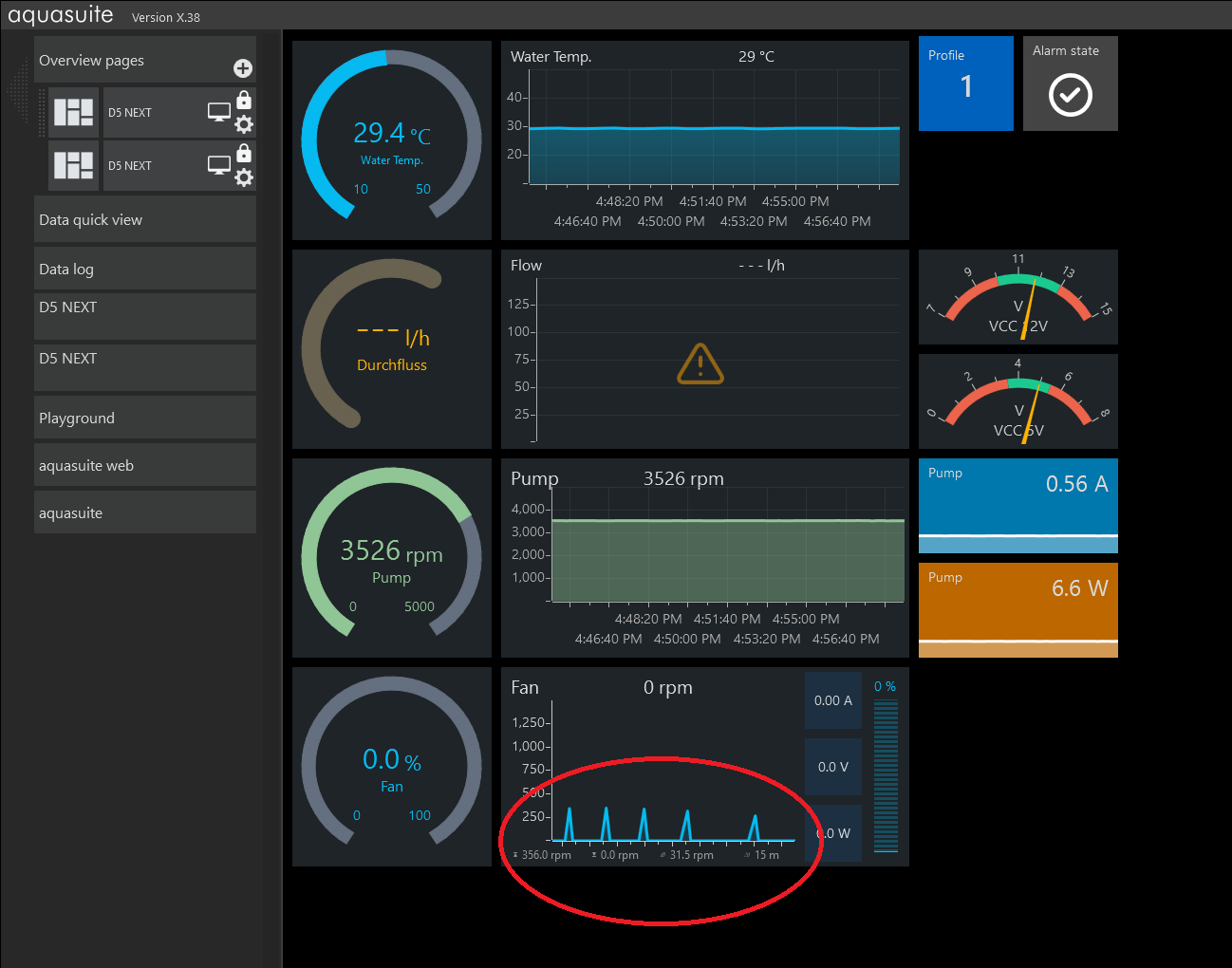
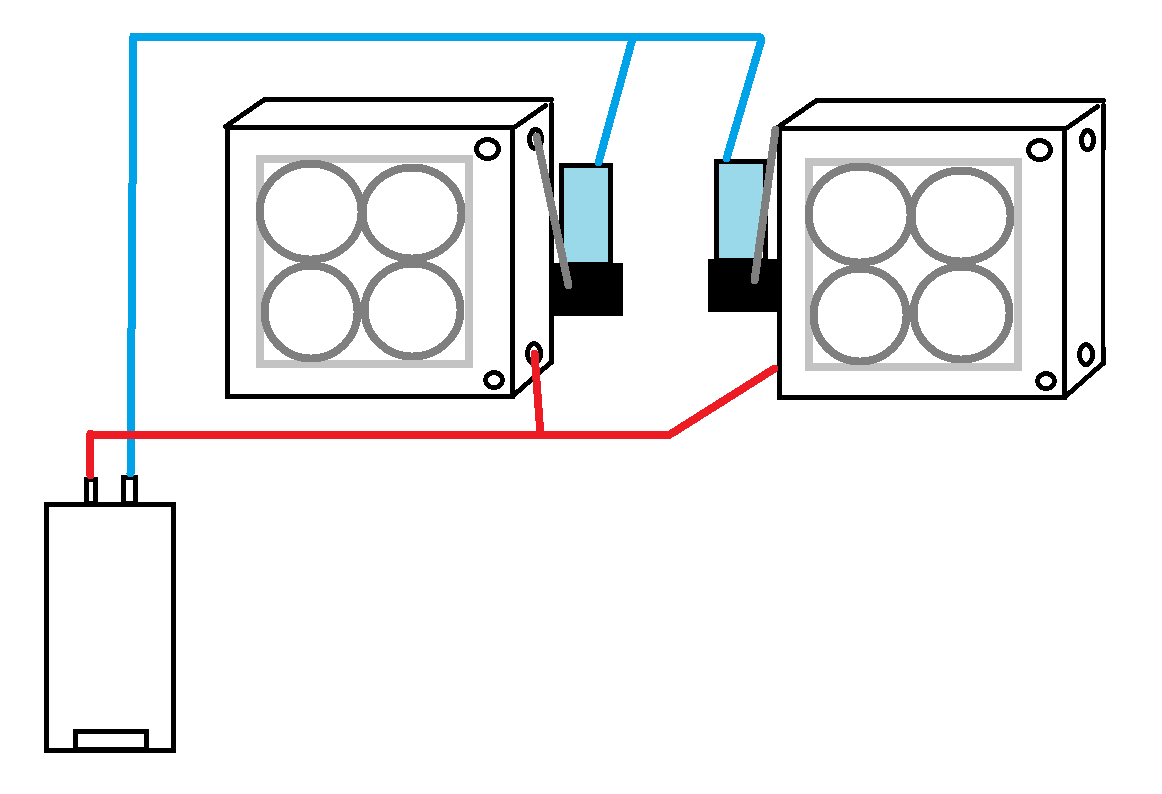
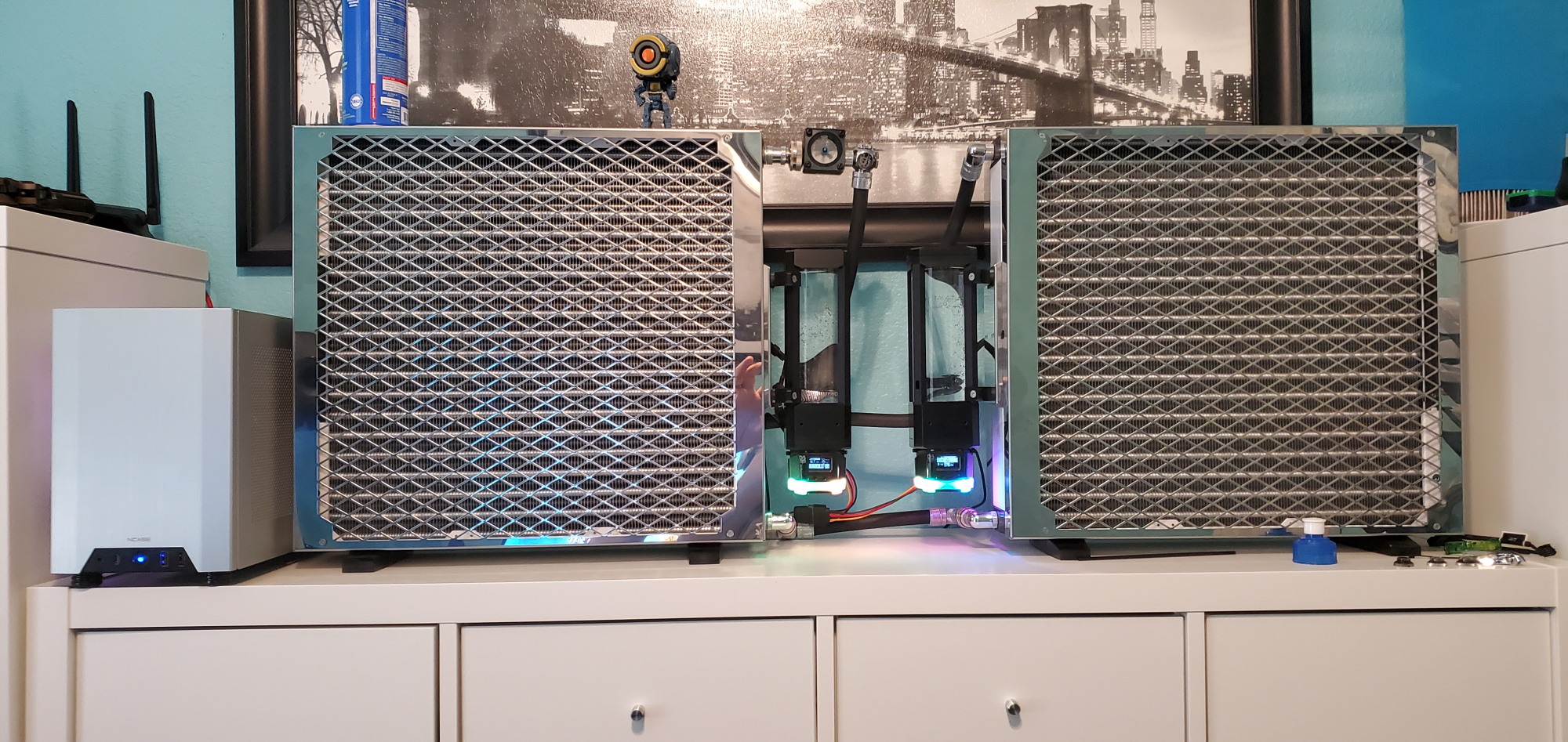
Is 29.4c your water temp Idle?My issue is that I have a very large loop and two giant MORA rads so I can run semi fanless / low speed fans (eight Noctua 200mm fans) - but I can't figure out how to configure Aquasuite with a fan threshold so that the fans don't just blip on and off every few minutes - it's inaudible, but I'm not sure how bad it is for the fans...
I've also been playing with the pump speeds - I have them on a curve with 50% being the minimum speed and ramping up with the temp, but this is just based on guessing and I'm not sure how much it matters.
View attachment 351558
View attachment 351557
View attachment 351564
Are you sure the fans are being given enough minimum power to stay running?My issue is that I have a very large loop and two giant MORA rads so I can run semi fanless / low speed fans (eight Noctua 200mm fans) - but I can't figure out how to configure Aquasuite with a fan threshold so that the fans don't just blip on and off every few minutes - it's inaudible, but I'm not sure how bad it is for the fans...
I've also been playing with the pump speeds - I have them on a curve with 50% being the minimum speed and ramping up with the temp, but this is just based on guessing and I'm not sure how much it matters.
View attachment 351558
View attachment 351557
View attachment 351564
The issue is that they trigger at a given temp, run for maybe 10-15 seconds, then the temp drops below the threshold and they go off again.Are you sure the fans are being given enough minimum power to stay running?
Based on Noctua’s specs for their 800RPM 200mm PWM fans, minimum rotation speed is 350rpms (+/- 10%). Your graph shows it barely hitting that when it does spin up. If barely enough power is being supplied, it might not be enough to start the fan or cause it to be intermittent as power fluctuates.
Try increasing the minimum speed to see if that helps.
My issue is that I have a very large loop and two giant MORA rads so I can run semi fanless / low speed fans (eight Noctua 200mm fans) - but I can't figure out how to configure Aquasuite with a fan threshold so that the fans don't just blip on and off every few minutes - it's inaudible, but I'm not sure how bad it is for the fans...
I've also been playing with the pump speeds - I have them on a curve with 50% being the minimum speed and ramping up with the temp, but this is just based on guessing and I'm not sure how much it matters.
View attachment 351558
View attachment 351557
View attachment 351564
The D5 Next has a built in fan controller and water temp sensor as well. I'll probably end up with a fixed pump speed, just trying different things.What sensor are you using to control the fans? I assume the D5 Nexts internal water temp? You may just need to adjust the temperature that allows for 0 rpm by a degree, although generally coolant temp will not fluctuate much at idle.
What controller are you using for the fans? Motherboard? Powered splitter?
I stopped bothering with adjusting pump speed on the fly. I found no real coolant temperature difference between 100% (4500rpm) and 45% (3600ish rpm) other than the noise. With my setup, under extended load and stabilized coolant temps, I saw less than 0.5c difference. However at lower speeds less than 2500rpm, the coolant temps were higher by 1.5/2c. So I just leave the DDC pump set at 45% which is silent.
But like many things WCing your system setup/layout/components will yield different results.
Yes, with the A/C on - load isn't much higher - the red line is when I stopped playing Apex Legends after 2 hours on a 4.9Ghz 10900K and a 2100Mhz 2080ti:Is 29.4c your water temp Idle?
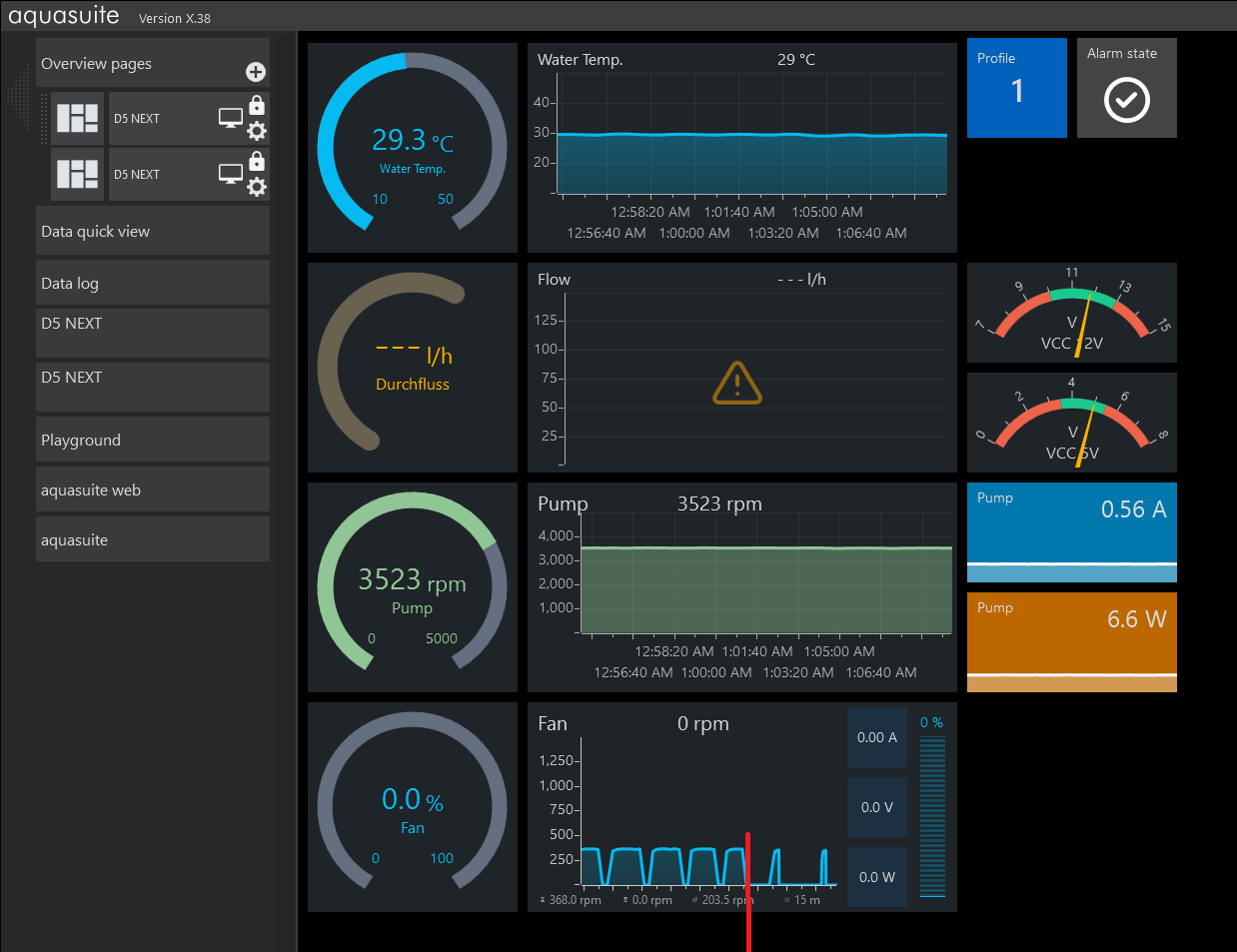
I expected lower water temp with those Rad you have + you have an A/C onYes, with the A/C on - load isn't much higher - the red line is when I stopped playing Apex Legends after 2 hours on a 4.9Ghz 10900K and a 2100Mhz 2080ti:
The D5 Next has a built in fan controller and water temp sensor as well. I'll probably end up with a fixed pump speed, just trying different things.
The fans barely need to work as the system can run fanless, under load, for 10-15 minutes before hitting 41C. If I kept the A/C on all the time, could probably run passive with one more rad...
But the fans are barely running.I expected lower water temp with those Rad you have + you have an A/C on
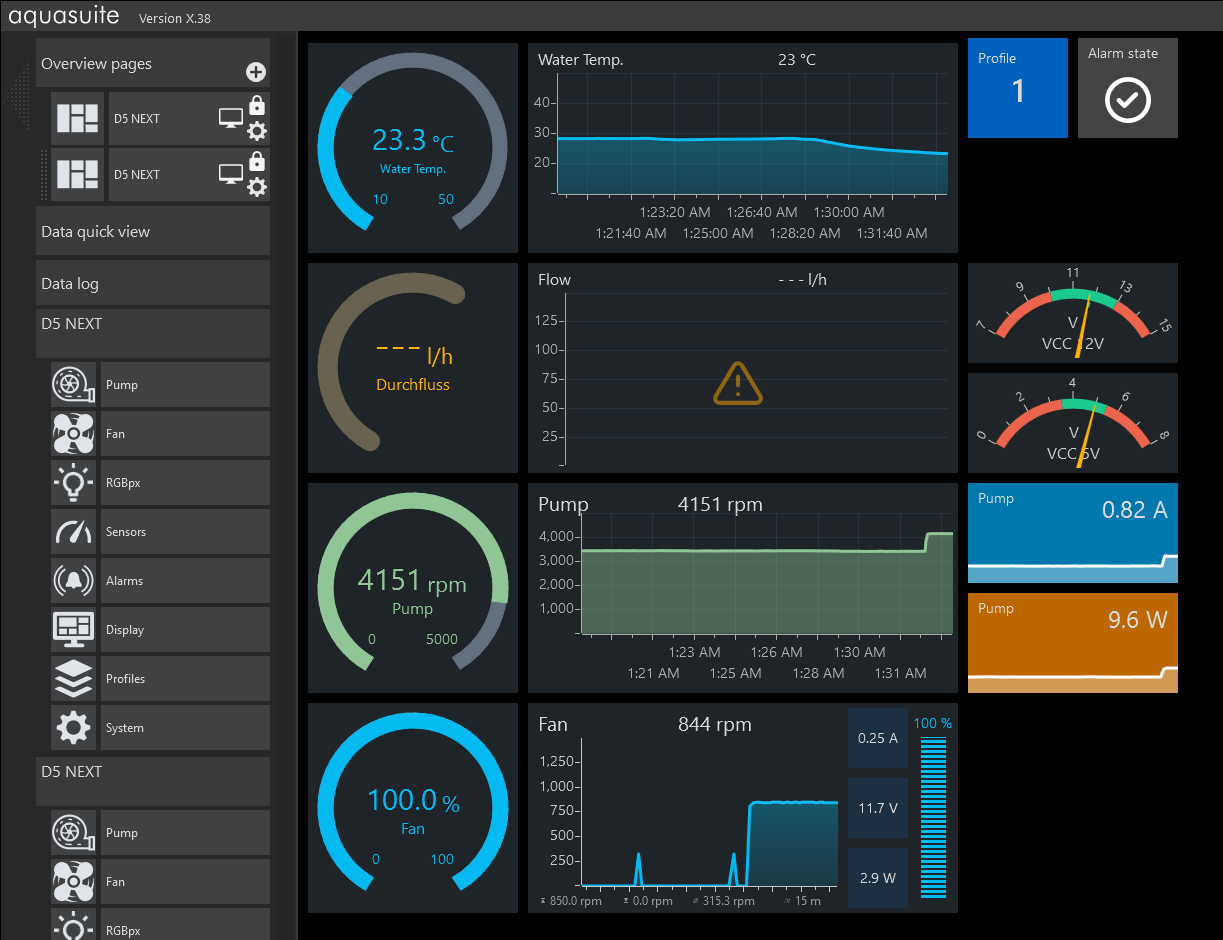
My when not Playing runs at 700Rpm, those Corsair LL120 and LL140 are inaudible, i know that if i had better fans i could achieve better cooling results.But the fans are barely running.
My when not Playing runs at 700Rpm, those Corsair LL120 and LL140 are inaudible, i know that if i had better fans i could achieve better cooling results.
What's your max fan speed when playing games?
I see, so you want an on threshold that is higher than the off threshold. But the way it is currently setup the on and off trigger is essentially the same temp. Turn on fans when temp reaches 30C but do not turn off fans until temp is below 28C, for instance. This is much like how Nvidia has their fans setup on their RTX 3090 FE. Fans will stay off until it gets above 40C, then they will kick on. When temps drop below 36C, the fans turn off. That way the fans are not constantly being tripped on an off.The issue is that they trigger at a given temp, run for maybe 10-15 seconds, then the temp drops below the threshold and they go off again.
I'd like to set it up so that once they go on at 30C, they run until it drops to, say, 29C and then don't go back on until 30C again.
Your assessment is correct and I probably should just run them at minimum all the time but before I built the dual MORA 420s, I ran a single MORA 360 with a Demciflex filter on the grille - it picked up a surprising amount of dust (it was right by my door which is a high traffic area - new system is at the back of the room). I was hoping to run semi fanless to reduce dust accumulation but maybe it's not really that necessary - it's been a couple weeks and I have not noticed a dust issue.I see, so you want an on threshold that is higher than the off threshold. But the way it is currently setup the on and off trigger is essentially the same temp. Turn on fans when temp reaches 30C but do not turn off fans until temp is below 28C, for instance. This is much like how Nvidia has their fans setup on their RTX 3090 FE. Fans will stay off until it gets above 40C, then they will kick on. When temps drop below 36C, the fans turn off. That way the fans are not constantly being tripped on an off.
I would think if configurable, that only have a 1C disparity between on and off will be too small.
If the fans are inaudible at their lowest speed, why not just set the lowest speed they will run as your minimum and only have them ramp up when temps increase above a certain threshold?
I know that is more of a band-aid than a solution, but your average temps should be even lower and I wouldn't think power consumption of the fans (especially PWM fans) would contribute much when considering the rest of the setup.
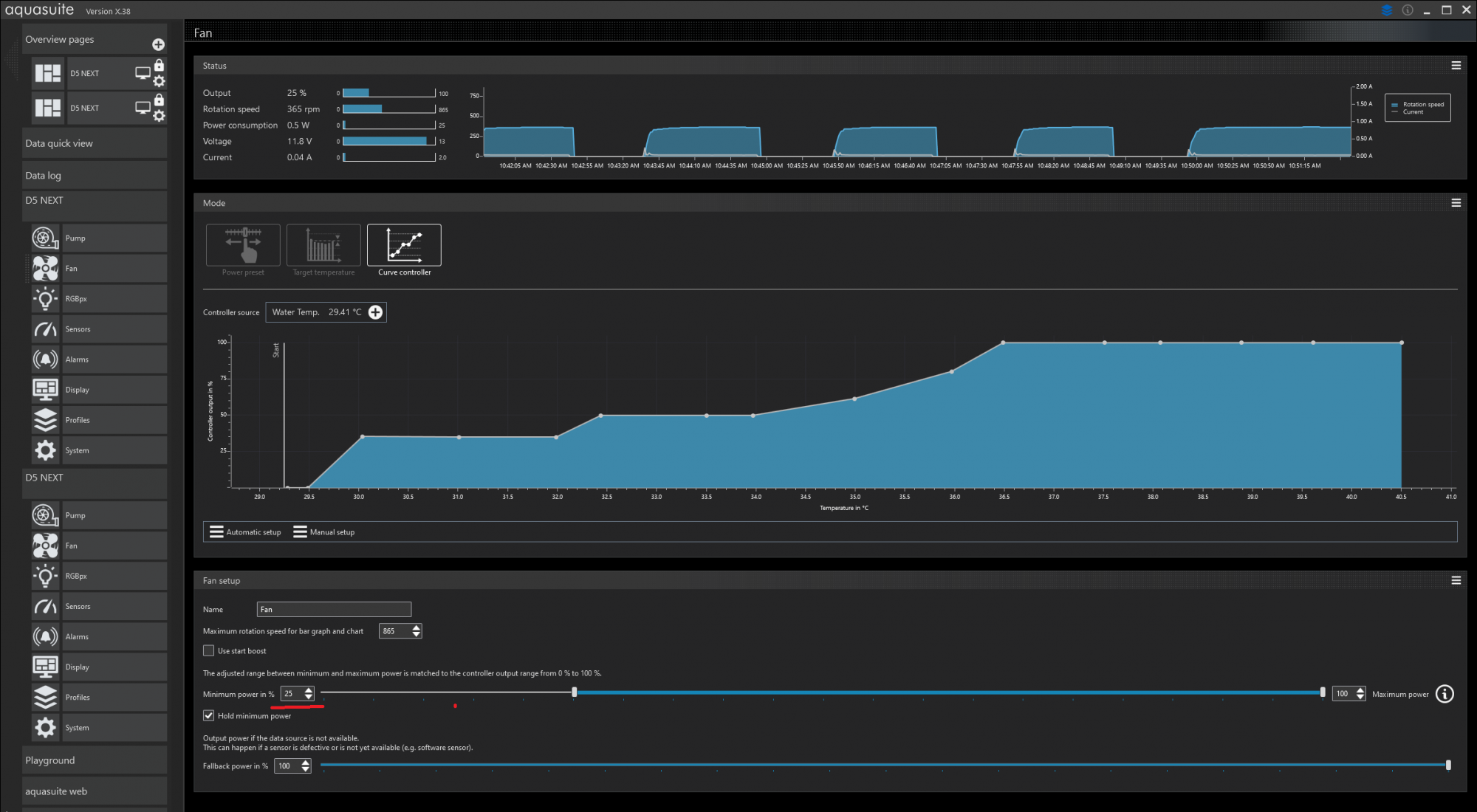
1 gal is equal to 3.78 liters
cranked all the way up?
Pump is running at max 4800Rpm, even it's a low L/m i still don't understand how it is possible that the Loop is cooling that well.cranked all the way up?
Maybe the absolute volume of your rads and coolant capacity along with your 26c ambient temp is outpacing your PC's ability to heatsoak even with such a low flow rate. You do have 3 massive rads that are 54mm thick only cooling a CPU and video card. Based on Hardware Labs specs, just one of the 480 rads is rated for 2200w capacity of heat dissipation (however they get to measuring that). The 420 is rated for 2000w. You have a combined capacity of potential heat dissipation of 6,400w.Pump is running at max 4800Rpm, even it's a low L/m i still don't understand how it is possible that the Loop is cooling that well.
Should i stress both at the same time and then how do i know if it is handled?were you loading up the video card as well to see how much your setup can handle if everything was pegged out?
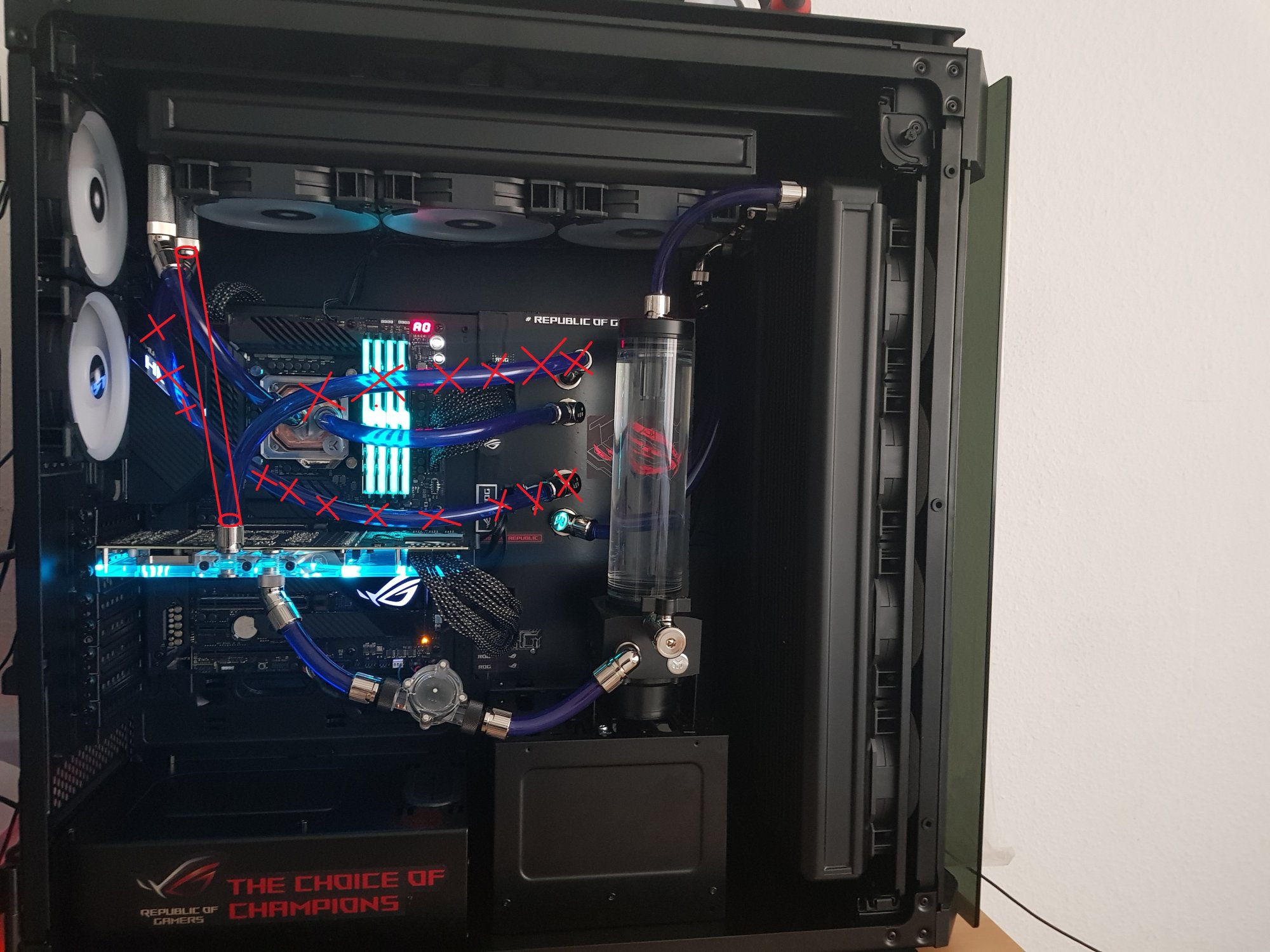
The main issue is most likely having that many large radiators along with a distribution block on a single D5. Removing the distribution block and running everything in series would probably help quite a bit. E.g. what you showed in the picture along with a direct connection from the CPU to the radiator. Are there any quick disconnects in the loop? Those can be very restrictive as well.Should i stress both at the same time and then how do i know if it is handled?
I was thinking to remove some tubing, maybe help increasing the flow rate?
View attachment 352024
My guess would be that they measure with 15 or 20 degrees above ambient in water temp along with high pressure fans running at 3000rpm or something like that.Maybe the absolute volume of your rads and coolant capacity along with your 26c ambient temp is outpacing your PC's ability to heatsoak even with such a low flow rate. You do have 3 massive rads that are 54mm thick only cooling a CPU and video card. Based on Hardware Labs specs, just one of the 480 rads is rated for 2200w capacity of heat dissipation (however they get to measuring that). The 420 is rated for 2000w. You have a combined capacity of potential heat dissipation of 6,400w.
When doing a load test on your CPU, were you loading up the video card as well to see how much your setup can handle if everything was pegged out?
because its still decent flow and you have a fuck tonne of rad, which is slowing the flow but obviously it still fine.Pump is running at max 4800Rpm, even it's a low L/m i still don't understand how it is possible that the Loop is cooling that well.
You can try using FurMark to get a general idea. It can stress both the GPU and the CPU and is still pretty responsive to kill the tests if needed. I’ve done that before: kick off the GPU stress in a window then the CPU burner. That way both can be killed relatively quickly if you run into any issues.Should i stress both at the same time and then how do i know if it is handled?
I was thinking to remove some tubing, maybe help increasing the flow rate?
View attachment 352024
With all respect but i have always avoided FurMark.You can try using FurMark to get a general idea. It can stress both the GPU and the CPU and is still pretty responsive to kill the tests if needed. I’ve done that before: kick off the GPU stress in a window then the CPU burner. That way both can be killed relatively quickly if you run into any issues.
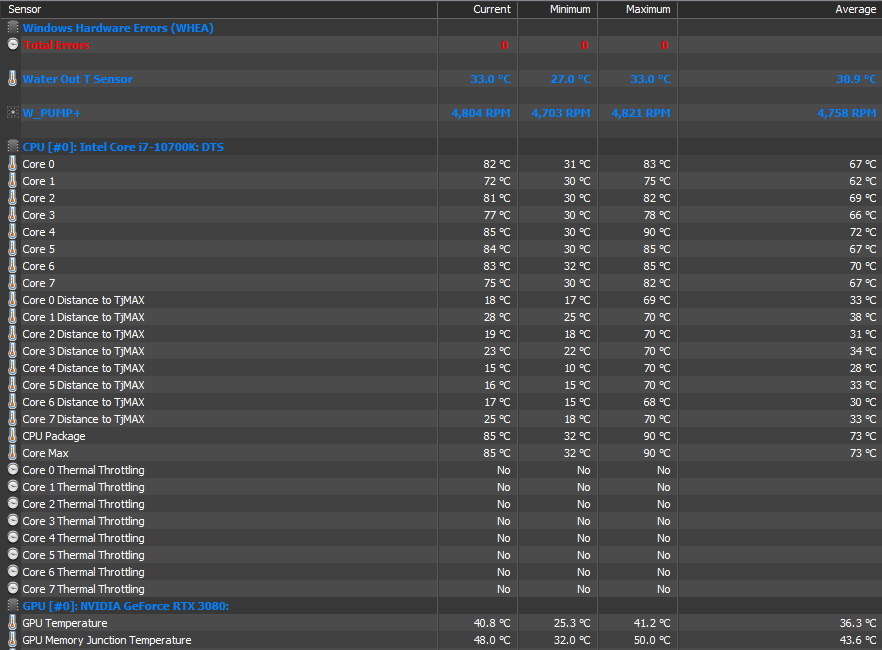
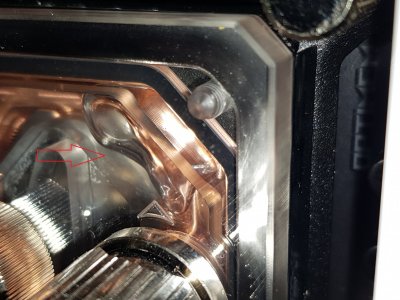
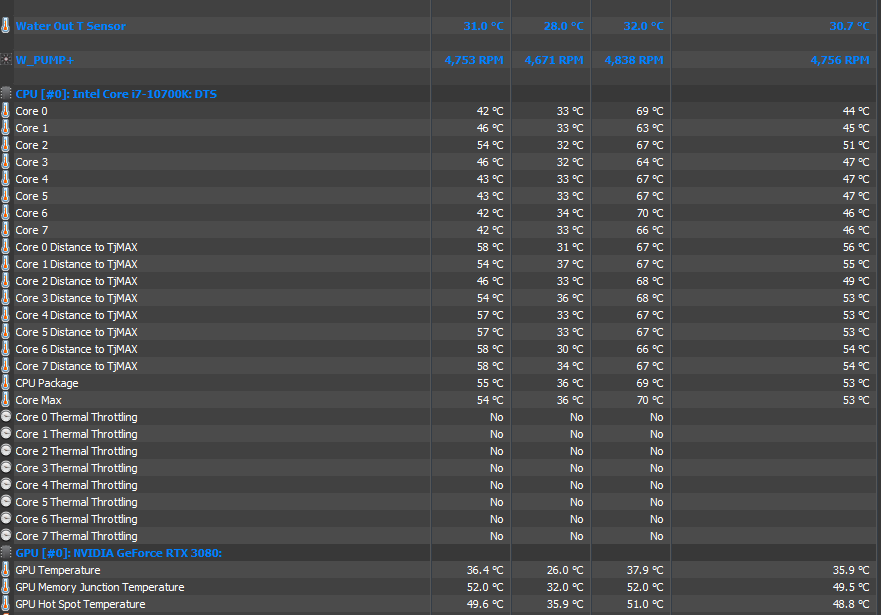
No quick disconnects.Removing the distribution block and running everything in series would probably help quite a bit. E.g. what you showed in the picture along with a direct connection from the CPU to the radiator.. Are there any quick disconnects in the loop?
gotta leave it running but tilt and move case around to get all the air out.a big air bubble trapped in the CPU waterblock
Kinda hard to move the case, over 50kggotta leave it running but tilt and move case around to get all the air out.
get a buddy. a couple minutes on its side should get that bubble out.Kinda hard to move the case, over 50kg
Anyway i will do as you said.

It is possible for air bubbles to affect temp, but with the way the CPU die is positioned in relation to where the air bubble is at, plus considering that the coolant is jetting coolant over the heatsink fins that are directly on top of the die, I wouldn't think that particular air bubble would be causing that particular spike on core 4. It could be just a core that is being worked harder, waterblock/thermal paste slightly uneven, heat spreader contact with the die.With all respect but i have always avoided FurMark.
Btw, i ran Prime95 + Heaven Benchmark for 2 hours. ( Ambient temps was 27.3c )
View attachment 352051
Core 4 temps is high but i assume it is because today I've drained the Loop and after refilled it there are still air bubbles and there was/is a big air bubble trapped in the CPU waterblock ( as far as i know air bubbles affect temps ) true or lie?
it was bigger
View attachment 352054
Temps while playing COD Cold War ( 2 Hours )
View attachment 352058
No quick disconnects.
At least part of the tubing in the distribution block will be removed ( VirtualMirage what do you think about it? )
I will do as you said.As for your tubing layout, I would just eliminate the distribution block entirely, if possible. I see in your illustration, you were going to leave the CPU going back to the distribution block, then from there to the radiator. Why not cut that extra junction point out and connect it right to the radiator?
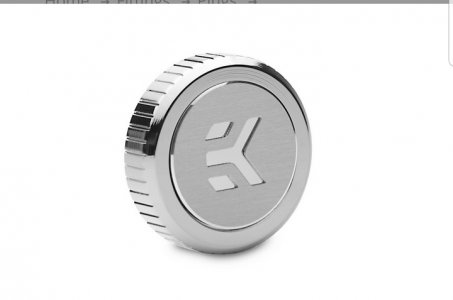
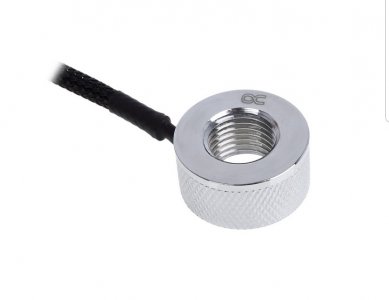
The temp sensor can be used along with 2 fittings, but why not just buy more tubing and do a continuous run?I will do as you said.
I will remove all tubing from the distribution block, it will takes 1/2 weeks for that because i need to order a few things from ekwb.
I need 8 of this
View attachment 352215
I will use it to seal off/close the empty fittings in the distribution block.
I want to ( link/merge/connect? ) the tube from CPU the block with the with the radiator one, can i use something like this:
View attachment 352232
Because i would like to know/monitor the water temp going into the radbut why not just buy more tubing and do a continuous run?